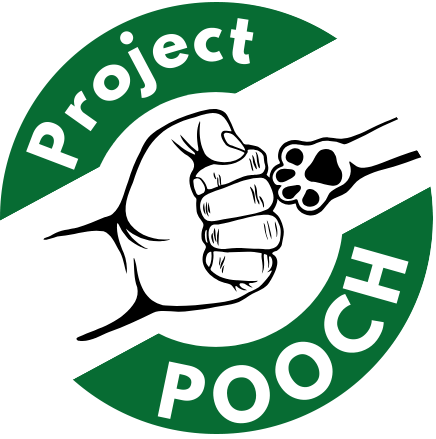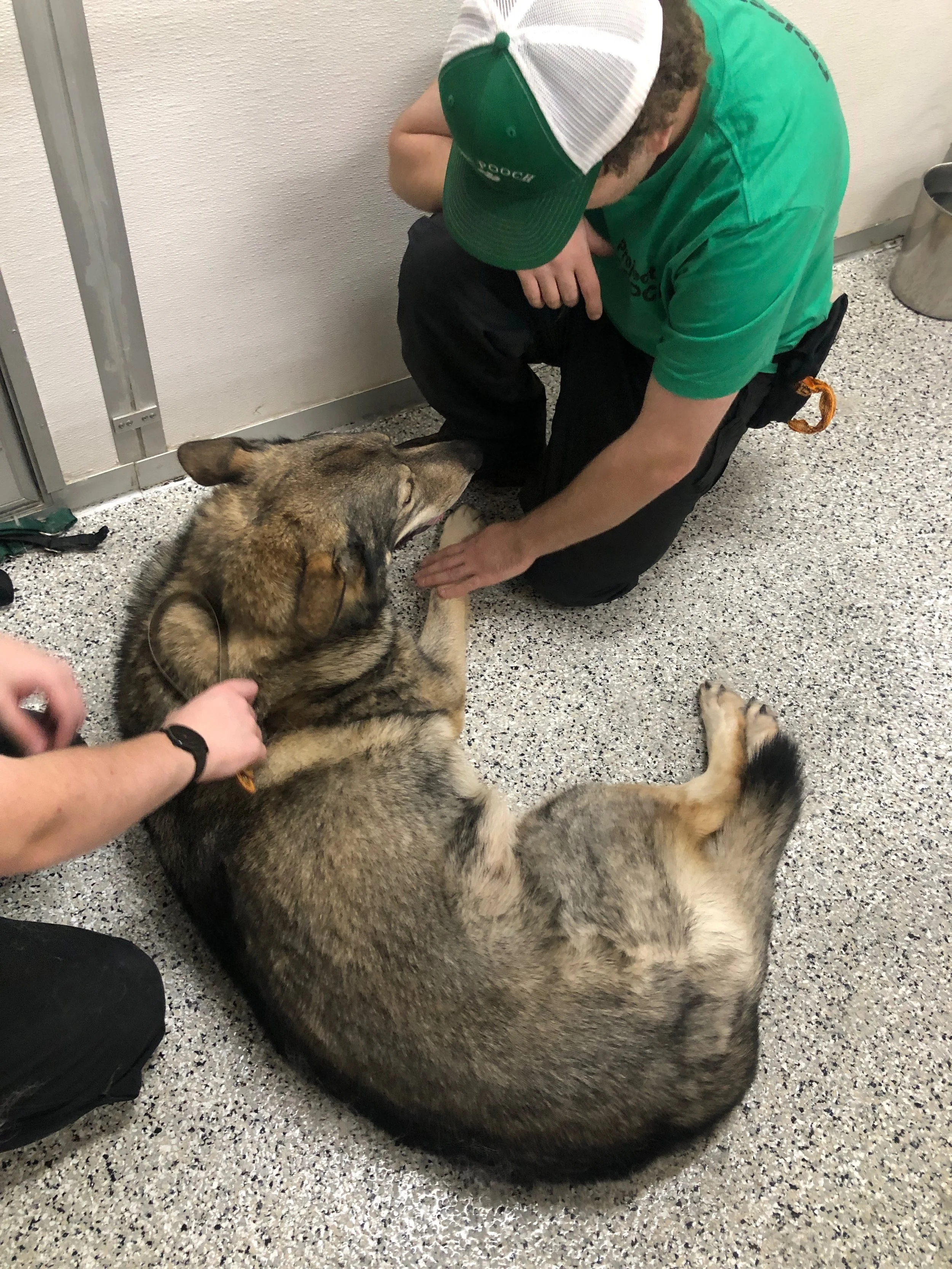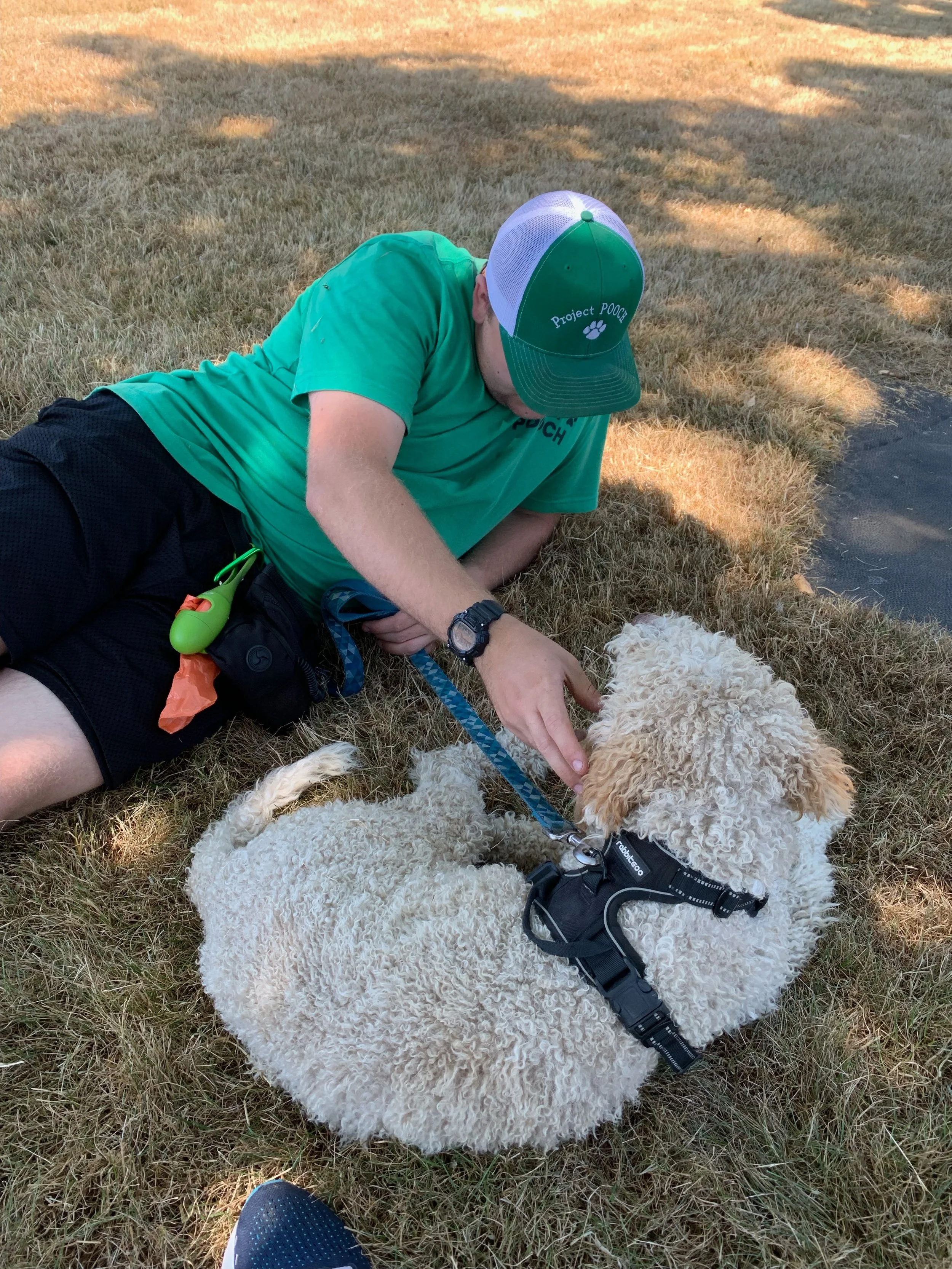“I’ve been working at Project POOCH for two and a half years. The most rewarding thing about being part of POOCH is being able to see one of my dogs become a successful member of a family. This is a gratifying experience because I get to see a dog that came in with almost no chance of landing in a caring home. Yet, with training and the right family, all the work with the dog pays off in the end.” — M.I.
Working with dogs helps our youth workers think beyond themselves, as they take on the care and responsibility of living creatures.
The youth at Project POOCH are responsible for the care, training, and upkeep of a working kennel. We teach positive reinforcement training, kennel management, basic grooming, along with offering the youth the opportunity to complete online trainings in Fear Free Shelter Programs, Canine Basics, and Canine Advanced skills, as well as working alongside a dog trainer to develop their skills.
Through daily work with the dogs that includes comprehensive charting, the youth hone their observational skills, along with their writing and verbal communication skills. The youth learn to be advocates for each and every dog that comes through Project POOCH.
A Day at POOCH
Days at POOCH start bright and early. First up is cleaning and sanitizing the kennels. This is a critical step to ensure the health and safety of the dogs. Our goal is for each dog to be out of their kennel for a minimum of 2–3 hours a day; with a goal of being out of their kennel for the majority of our open hours. This outside of kennel time could be walks, yard time, classroom time, time at our training center, our kennel buddy time. The important thing is the dogs are getting their needs met, whatever those needs are.
When we do walks, walks are a combination of exercise and sniffy walks. Walks are good healthy exercise for the dogs and youth, as well as it offers training opportunities. There is unstructured time to train the dogs, engage in playtime with the dogs, chart their observations, and come together as a team to discuss each dog. As the POOCH day winds down, the youth ensure that all the dogs have clean kennels, full water bowls, and a treat before they head out for the night. Soft music is turned on to help soothe the dogs through the nighttime hours.
Patience. Responsibility. Compassion for All Life.
Project POOCH’s Impact
At POOCH, both youth and dogs experience unconditional love.
Our typical youth is between the ages of 18–21
Youth may work a part-time or full-time schedule at Project POOCH.
If a youth is still in high school, they may work in the afternoons after school, or solely on the weekends.
We strive to offer highly customized work opportunities to meet youth where they are at, to offer the highest number of youth the opportunity to participate in this life-changing program.
Youth are paid an hourly wage for their work at POOCH, and by demonstrating skill and dedication they can increase their wage during their time in the program, just like in any other job. Youth also receive a portion of the adoption, boarding, and grooming fees. Every time you pay for a service at POOCH, some of that money is going directly to the youth. The youth’s wages may go to pay restitution or for childcare. If the youth is not responsible for these expenses, then the money goes into a trust fund that can be used for living expenses when they are released.
Youth must be cleared by the MacLaren staff for a high-level job.
No incidents on campus for 4 months.
Youth must have no prior issue with animal abuse.
Project POOCH operates at the MacLaren Youth Correctional Facility, in Woodburn Oregon. MacLaren is operated by Oregon Youth Authority (OYA). OYA is responsible for youth ages 12–24 who commit crimes before the age of 18.
From the YOUTH …
“I enjoy working in POOCH because of the dogs and the people in this program.
In the past, I used to not be concerned with much besides my own needs, but I realize this wasn’t very healthy for me. But now, when I walk up to the entrance to POOCH and I hear all the barking coming from the kennels, I get excited. By working and being with these dogs, I find myself caring more and more about how they are and how they’re progressing in their training. I also think about how they’re doing every day that I’m away from them.
Being taught to care for and appreciate these animals, along with the interaction we have with people from the outside, we learn to have compassion for things other than ourselves. Project POOCH is a great idea, and I hope that ideas such as this one will be used in other correctional facilities as a way of motivating people who need to learn to show kindness, friendship, trust and compassion.”
— B.N.
“I haven’t been in the POOCH program as long as many of the others, but here’s how I see it: I want to spend as much time as possible with the dogs. At the same time, though, I still have to go to school so I can’t spend as much time as I want.
But when I’m here, I like training the dogs. I especially like when I tell the dog to sit and he does it. I feel good about that because I never had a dog like that before.
People who have been in the program longer that I have usually have their own dog to work with. I’m looking forward to having one of my own to work with, but in the meantime, I like walking and working with any dog.”
— A.T.
“I was born in Oaxaca, Mexico. I’ve always been around animals because my parents always had lots of dogs, but I never thought that one day I would be working on training dogs and helping them to be good dogs. I know that I’m not only helping the dogs. I’m helping myself.
It used to be that dogs were, to me, just like any other animal. But, with time in POOCH, they became something special in my life. Some of them were bad dogs that came here. Just like me. I was a bad person in my community. But now I teach the dogs to be good dogs so they can go to a new home, and it makes me feel really good when I see my dog take off for a new home. I can see he’s happy with his new family.
My life has changed a lot because of helping the dogs. They’re helping me at the same time I’m helping them. I used to be a troublemaker before I started working in this program, but now that I know that there’s someone up there in the kennel waiting for me, I choose to take care of business so I can be with my dog all day. I became a responsible person because I now that my dog depends on me.
Everybody deserves a second chance. We give that chance to dogs that need it.” — L.S.


